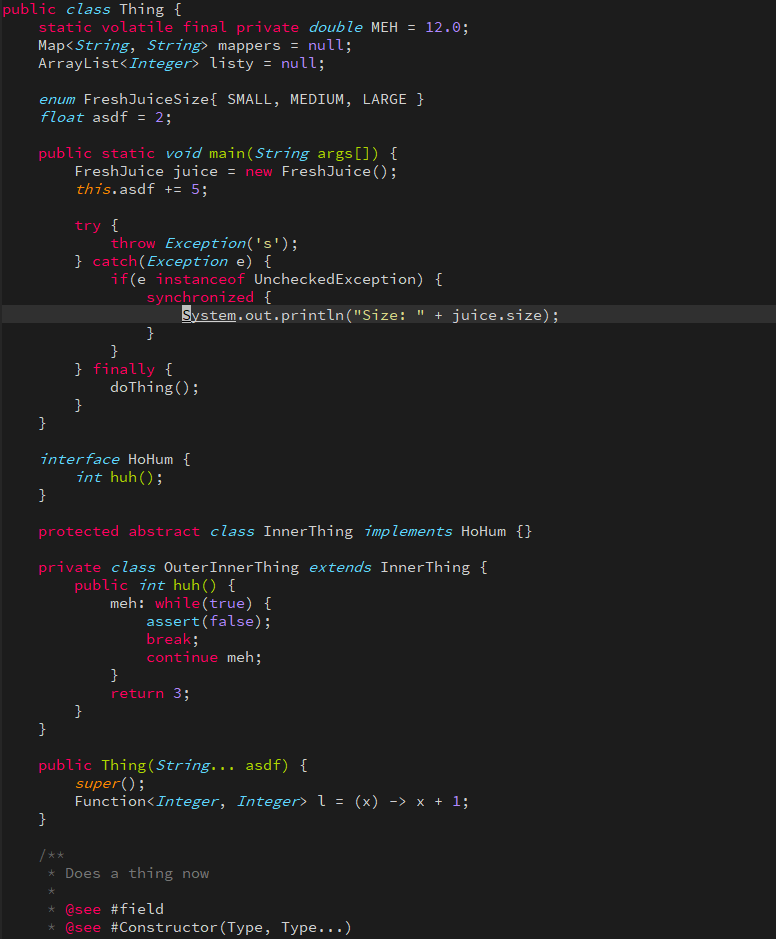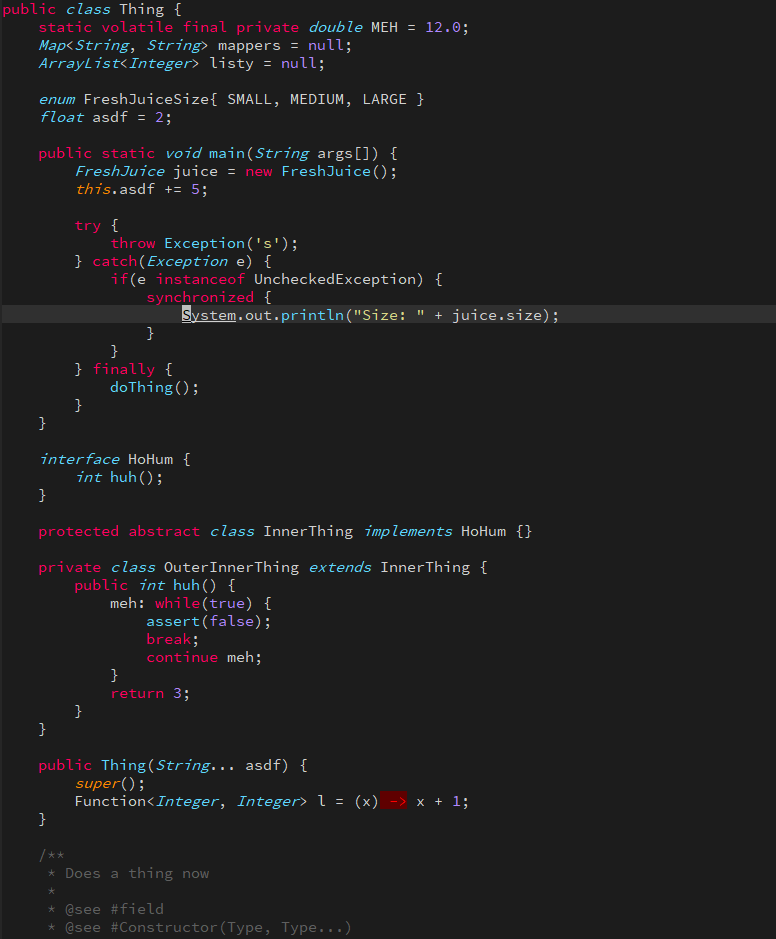Looking for screenshots? Scroll down to see!
vim-sublime-monokai is a refined Monokai color scheme for vim tries to look
like Sublime's default color scheme. It's derived from the work put into:
I noticed that there were several places where the highlighting wasn't entirely faithful to that of Sublime, which is my second choice for editing in my day-to-day. The purpose of this project is to provide an experience that matches Sublime as closely as possible.
Note that, in my case, I use several plugins to enhance my own highlighting and
ctags experience. Where possible, the dependent plugins have been noted for
languages whose highlighting would otherwise be impossible to make equivalent
to Sublime. Conflicts with other plugins that I've used have been noted. You
will NOT get full fidelity with Sublime's highlighting if you use conflicting
plugins with this color scheme enabled.
Use your favorite plugin manager! Alternatively, download the
colors/sublimemonokai.vim
file and move it into your colors folder.
After installing this plugin via your favorite plugin manager, add the
following to your vimrc:
syntax on
colorscheme sublimemonokaiInside of sublimemonokai.vim one will find
notes and suggested variations from exact Sublime colors that contributors have
found to be superior to vanilla Sublime. It is recommended that you take a look
and see if there's anything you like! Deficiencies in syntax highlighting
support that make it impossible to achieve parity with Sublime have also been
noted. These are prime candidates for PRs if you find a plugin with better
syntax highlighting groups!
vim-sublime-monokai only support 256 colours in terminal. If you are using a
terminal which support truecolor like iterm2, enable the GUI color by
adding the following to your vimrc:
set termguicolorsOtherwise, use below setting to activate the 256 color in terminal
set t_Co=256By default italicized text is enabled in GUI (gVim), but in terminal it's not.
If you are using a font that support italics in terminal, add the following
to your .vimrc:
let g:sublimemonokai_term_italic = 1In order to provide an experience with parity to Sublime, this color scheme integrates with the highlighting groups that several language-specific plugins specify. You will need to install these plugins in order to have Sublime-like highlighting.
There are two flavors you can pick from here -- see below sections for more details.
This is the recommended option for Java. You will need at least the following configuration for proper color support:
let java_comment_strings=1
let java_highlight_functions=1
let java_highlight_java_lang_ids=1vim-javafor the core language
vim-javascriptfor the core languagevim-javascript-lib, for popular Javascript libraries, like underscore and Backbone.
cSyntaxAfterconflicts on many operator groups.
-
vim-gofor the core languageYou will need at least the following configuration for proper color support:
let g:go_highlight_format_strings = 1 let g:go_highlight_function_arguments = 1 let g:go_highlight_function_calls = 1 let g:go_highlight_functions = 1 let g:go_highlight_operators = 1 let g:go_highlight_types = 1
The following are also provided as options by
vim-goand are handled gracefully:let g:go_highlight_extra_types = 1 let g:go_highlight_fields = 1 let g:go_highlight_generate_tags = 1 let g:go_highlight_variable_assignments = 1 let g:go_highlight_variable_declarations = 1
This should cover all options provided by
vim-gopertaining to highlighting. If you notice that this is out-of-date, please submit a PR!
-
StanAngeloff/php.vimfor the core languageYou will need at least the following configuration for proper color support:
let g:php_var_selector_is_identifier = 1
-
python-syntaxfor the core languageYou will need at least the following configuration for proper color support:
let g:python_highlight_all = 1





